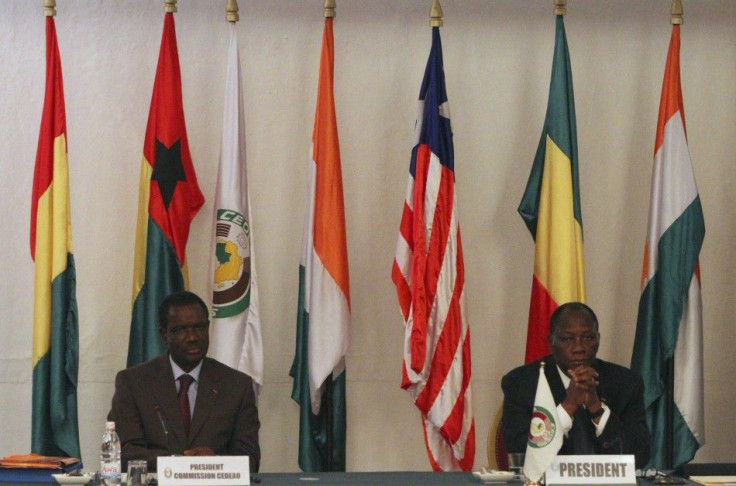Guinea-Bissau: ECOWAS Troops Arrive For Peacekeeping Mission

On Thursday, 70 soldiers arrived in Guinea-Bissau as part of a peacekeeping initiative by the Economic Community of West African States (ECOWAS). The troops are meant to stabilize the small country as it prepares for national elections in 12 months, following a military coup that deposed the civilian government.
Ever since winning independence from Portugal in 1974, Guinea-Bissau has endured constant political volatility. The country is small and poor; of its 1.5 million residents, about two-thirds live below the poverty line. In recent years, a drug-trafficking epidemic has exacerbated Guinea-Bissau's economic problems. Transporting narcotics has become the country's most lucrative enterprise, surpassing traditional fish and cashew exports.
High-ranking members of the military have been accused of aiding and abetting the drug trafficking, which has complicated national politics and provoked constant power struggles, coups and high-level assassinations.
The last coup took place on April 12, when a group calling itself the Military Command interrupted a presidential election. The takeover prevented a likely victory for Carlos Gomes Junior, who had been in favor of reforming the military.
The Military Command installed a transitional government. They claimed their main goal was not to seize power, but to prevent an alleged secret accord with the Angolan government to send their troops into Guinea-Bissau.
This accord aims to legitimize the presence of foreign troops, namely the Angolan military mission, in order to protect the government in times of crisis, argued the coup leaders in a radio statement.
Angola, a fellow ex-Portuguese colony, denied the allegation, though some of its forces are stationed in Guinea Bissau in the context of a bilateral relation, according to Manuel Vicente, a minister for economic affairs in Angola.
The military coup in Guinea Bissau was widely condemned by the international community, and ECOWAS implemented economic sanctions when military leaders failed to cooperate with plans to restore a civilian government.
On Wednesday, following weeks of negotiations, Military Command and ECOWAS agreed to appoint former economist Rui Duarte Barros as the prime minister of a transitional government, which is expected to rule for one year in the run-up to national elections.
They also agreed that hundreds of foreign troops would be stationed in Guinea-Bissau. According to a statement from ECOWAS, the forces will relieve the Angolan military personnel [and] support the restoration of constitutional rule.
Barros took office on Thursday as the first wave of foreign soldiers arrived in the country. In coming days, a total deployment of 629 troops is expected to enter Guinea-Bissau, including contingents from Nigeria, Burkina Faso, Senegal and Togo.
© Copyright IBTimes 2024. All rights reserved.






















